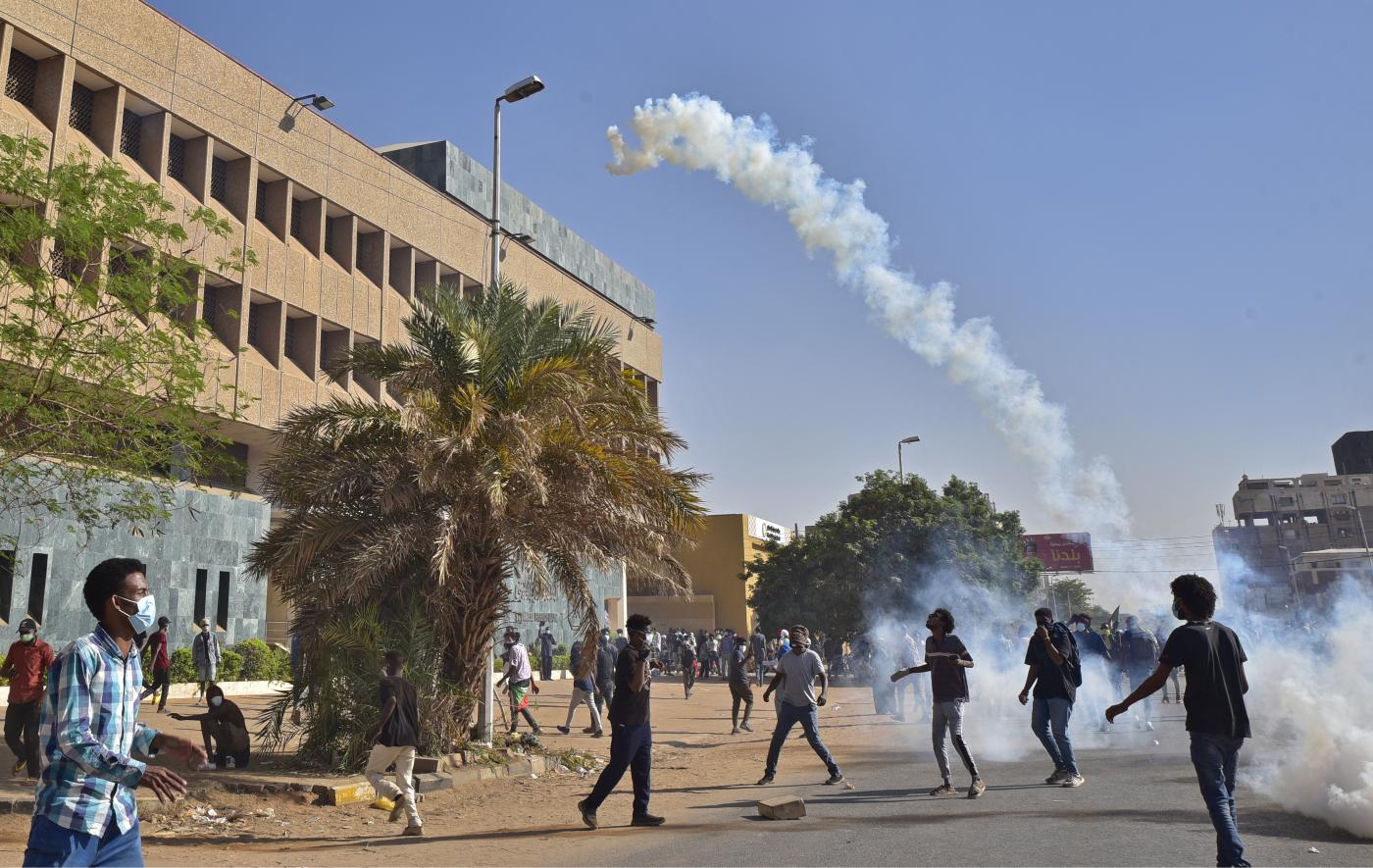Mass demonstrations in the Sudanese capital city of Khartoum have been met with tear gas fired by the country’s military forces.
Tens of thousands of protesters rallied in central Khartoum on Tuesday to oppose the military rule, despite an agreement last week that reinstated civilian Prime Minister Abdalla Hamdok, who was deposed for several weeks in a military coup last month.
Heavily-armed police forces deployed tear gas to disperse large crowds of protesters, who planned to march on the presidential palace. They gathered about a kilometer from the palace, blocking the main road and chanting “soldiers, go back to the barracks.”
Other cities such as Port Sudan, Kassala, Nyala, and Atbara also saw thousands of pro-democracy protests on the streets.
Local resistance committees and political parties have rejected the agreement signed by Hamdok, who promised to release dozens of prisoners, end the suppression of protests, and preserve billions in foreign aid.
Meanwhile, Hamdok has reportedly secured the release of most top politicians, such as Wagdi Salih, the popular leader of an anti-corruption task force, and former Industry Minister Ibrahim al-Sheikh, who were seen at the Tuesday protests.
“[However,] there are still detainees in Soba prison in Khartoum, men, women, and children who were arrested during the protests under the state of emergency and we demand their release along with others across Sudan’s states,” lawyer Moiz Hadra said.
The demonstrations come as Hamdok dismissed at least eight general intelligence officers, replaced the head of military intelligence, and dismissed two other police chiefs who were behind a brutal crackdown on pro-democracy protesters, which led to the death of at least 42 people following last month’s coup.
READ ALSO: ‘Scientifically unjustified’: S. African president calls for reversal of Omicron travel bans
More than two years ago, massive anti-government demonstrations hit Sudan, mostly over deteriorating economic problems. The protesters, mostly youths, demanded the resignation of the then-President Omar al-Bashir.
Bashir was ultimately deposed through a military coup in April 2019, after ruling over the country for three decades. In August the same year, a transitional civilian-military administration was founded to run the country.
Junta leader Abdel Fattah al-Burhan dissolved the country’s transitional government on October 25 and arrested civilian leaders. However, he reinstated Hamdok as the prime minister following international condemnation and mass protests.













